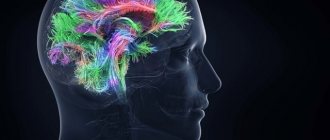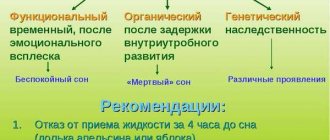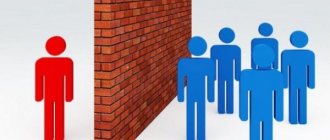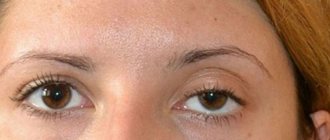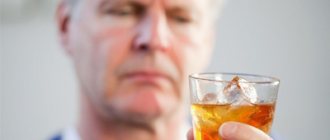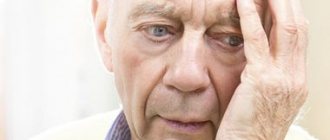Causes of Bruxism
There are several theories about the appearance of bruxism in adults. Psychological theory attaches great importance to the emotional state of a person in the development of the disease. Thus, factors favoring the development of bruxism may be the following:
- stress;
- high psycho-emotional stress;
- social and everyday disorder, troubles;
- frequent affective states.
The disease is called the disease of businessmen. People who undergo high psycho-emotional stress and take on great responsibility experience tension, which leads to involuntary muscle spasms during sleep. But it is important to understand that positive-minded patients can also suffer from this disease.
According to the neurogenic theory, the causes of bruxism in adults lie in disruption of the central and peripheral nervous system. This leads to neurological and movement disorders, muscle spasms. The validity of this theory is confirmed by the fact that, along with bruxism, sleep disorders (apnea, snoring, somnambulism) are often observed; tremor, epilepsy, enuresis - bedwetting. Tonic muscle tension can also be associated with damage to the trigeminal nerve.
Dental theory is based on the assumption that bruxism develops as a result of disturbances in the structure and function of the dental system. These include the following:
- bite defects;
- incorrect position of teeth;
- supernumerary teeth;
- crowded teeth;
- violation of the integrity of the dentition (partial adentia);
- incorrectly selected dentures and orthodontic structures;
- overestimation of fillings according to the bite;
- diseases of the temporomandibular joint.
Dental diseases lead to uneven distribution of the chewing load, and therefore the chewing muscles do not work properly. Her overexertion leads to nighttime cramps.
According to osteopathic theory, muscle contraction is an attempt by the neuromuscular system to eliminate blockage of the cranial sutures and restore craniosacral rhythm. This may be the result of birth trauma, malocclusion and posture, diseases of the cervical spine, etc.
Other theories about the origin of bruxism are not widely accepted, but some researchers link the problem to impaired nasal breathing, gastroesophageal reflux disease (GERD), parasitosis, frequent chewing of plates or pads, and other factors.
In any case, the causes of bruxism in an adult can be different, so it is difficult to do without a comprehensive diagnosis and the involvement of several specialized specialists.
Ask a Question
Causes of the disease
The problem of bruxism is considered in different areas of medicine, since the pathology is at the intersection of dentistry, neurology, psychology, gastroenterology, and otolaryngology.
Within the framework of psychology, a disease can hide emotional stress, mental overload, frequent states of passion; the body can react to such a psychological state with involuntary muscle spasms. For people living in a chronic state of stress, grinding their teeth in their sleep is an almost guaranteed occurrence. However, the presence of symptoms does not necessarily indicate psychological problems.
Neurology views symptoms as motor and neurological disorders. Along the way, additional signs are assessed, for example, enuresis, epilepsy, tremor, as well as somnambulism, apnea, the presence of nightmares, snoring and other nocturnal disorders. Neurologists study the condition of the trigeminal nerve, since damage to its motor neurons can lead to tonic spasms of the masticatory muscles.
Dentistry considers bruxism in adults as a disorder in the development of the dental system. This is common for people who have one of the following conditions:
- malocclusion;
- insufficient or excessive number of teeth (abnormal phenomena);
- poorly healed teeth;
- TMJ, arthritis, arthrosis and similar diseases are observed;
- the wrong set of dentures or braces was chosen.
Bruxism in children is associated with birth injuries or difficult childbirth, abnormal development of teeth, and the presence of malocclusion. In adults, the disease may be associated with osteochondrosis and incorrect dental prosthetics.
Dental bruxism often occurs in people with Huntington's chorea and Parkinson's disease. Harmful drugs and substances, including alcohol, nicotine, and sleeping pills, can provoke symptoms. Negative effects on the body and changes in behavior often provoke TBI. Bruxism in children occurs during the growth of new teeth.
Signs of Bruxism
An episode of nighttime teeth grinding lasts about 10 seconds. The number of episodes may vary and they may occur every night or occasionally. A characteristic symptom is grinding or clicking of teeth, but the patient himself rarely notices this feature, because sleep is not interrupted. Usually the patient learns about the problem from the lips of relatives and people living with him.
Associated symptoms of bruxism are the following:
- pain in the jaw, teeth;
- headache;
- pain in the facial muscles;
- dizziness;
- drowsiness.
Diagnostic measures
The diagnosis is made by a dentist, neurologist or therapist. The doctor takes into account objective data obtained during examination of the patient’s oral cavity, and subjective complaints of a child or adult. In some cases, dentists conduct a test using a brux checker - a mouth guard made of a polymer material, made from an impression of the jaws of a person suffering from involuntary contraction of the masticatory muscles. The patient places the mouth guard in their mouth before going to bed and gives it to the hospital staff when they wake up. Brooks checker damage analysis is performed by a dentist. The doctor receives detailed information about the teeth that experience increased stress during attacks.
An alternative method for diagnosing the disease is electromyography - the study of electrical signals arising in the patient's muscle tissue. If there are appropriate indications, the child or adult is referred to a consultation with a psychologist, otolaryngologist or gastroenterologist.
Diagnostic methods
Diagnosis of bruxism involves studying the patient’s complaints, as well as assessing indirect signs based on the results of a routine visual examination. The leading method of objective diagnosis is the use of Brux Checkers - special mouthguards that are made on the basis of a plaster cast of the patient’s jaw. These aligners allow the detection of occlusal obstructions. The doctor issues brux checkers to wear overnight, after which the patient submits them to the clinic for analysis. Using diagnostic aligners, a specialist determines which teeth bear the greatest load.
Electromyography and polysomnography methods make it possible to register the pathological activity of the masticatory muscles and confirm the diagnosis of bruxism.
But, as a rule, it is possible to understand the reasons only with the help of comprehensive diagnostics. So, in the case of bruxism in adults, psychosomatics may occur, so consultation with a psychologist or psychotherapist will be required.
Treatment
After determining the cause, appropriate therapy is selected, sometimes including several methods. Psychotherapeutic training to relieve stress and tension, taking muscle relaxants, and correcting the bite give good results. A positive effect is observed when using relaxing procedures; safe methods of treatment with folk remedies are allowed.
Psychotherapy
Since in most cases uncontrollable teeth grinding is of psychogenic origin, the most common treatment method is psychotherapy sessions. Effective methods of cognitive-behavioral or biofeedback therapy are used.
Self-control and relaxation techniques, auto-training are also effective. Consultations with a psychologist are indicated.
Complications of bruxism
If the disease is observed for a long time, pathological abrasion of the tooth enamel, increased sensitivity of the enamel, and the appearance of a wedge-shaped defect, cracks and chips may develop. Constant trauma to the periodontal tissues can lead to periodontitis, loosening and loss of teeth. The service life of fillings and orthopedic structures (prostheses) in patients with bruxism is shorter due to high mechanical load.
The consequence of the disease can be dysfunction of the temporomandibular joint, accompanied by pain in the jaw and neck, hypertrophy of the masticatory muscles.
Frequent injuries to the soft tissues of the oral cavity can lead to inflammatory diseases: gingivitis, periodontitis, stomatitis.
Pathological closing of the jaws during sleep complicates orthopedic and orthodontic treatment. Many dental restoration methods may not be available to patients, so it is important to pay attention to the disease in order to be able to receive comprehensive care in case of dental diseases or tooth loss.
Possible consequences and complications of the disease
Bruxism, if left untreated, gradually progresses. Attacks occur more often and begin to occur even during the daytime. At the same time, a person’s sleep quality deteriorates, performance, memory concentration and attention decrease. The functioning of the central nervous system is also disrupted, and constant daytime sleepiness develops. In addition, the disease can cause more dangerous complications:
- abrasion of the surfaces of individual teeth or dentition, which is accompanied by pain and increases the risk of developing caries;
- inflammatory diseases of the structures surrounding the teeth;
- bleeding gums, which are damaged when the jaws involuntarily close;
- weakening and inflammation of the temporomandibular joint - pain increases while eating or any other jaw movements;
- tension often spreads to the cervical vertebrae, which can trigger the development of osteochondrosis.
It is worth understanding that complications develop only in advanced cases. Modern medicine has all the necessary means and methods for treating bruxism, which allows you to get rid of its manifestations at any age. Despite the fact that attacks occur mainly at night, they are not the only symptom of the disease. Feeling of discomfort, tension and pain in the temporomandibular joint, increased sensitivity of the teeth - these problems should be addressed to a specialist.
Treatment methods for bruxism
Comprehensive treatment of bruxism may include medication, psychotherapy, physical therapy, and dental methods. This approach demonstrates the greatest efficiency.
The doctor will develop a treatment plan based on the severity of the disorder. It is very important to identify the causes in order to select adequate therapy.
In the case of exposure to psychogenic factors, the basis of treatment is cognitive behavioral therapy: the patient’s mastery of relaxation and self-control methods, psychotherapeutic trainings, art therapy, etc.
Drug therapy is aimed at reducing convulsive muscle activity. The main groups of funds include:
- magnesium, calcium preparations;
- B vitamins;
- mild sedatives;
- sleeping pills, etc.
Treatment of bruxism with botulinum toxin is also classified as a medicinal method. Botulinum toxin injections block nerve impulses entering the muscles, which relieves the muscles from involuntary spasms. The effect of botulinum toxin preparations is not permanent - after several months the injections are repeated. It is important to understand that this is rather a way to combat the symptom. Injections do not help eliminate the causes of the disease.
In some cases, osteopathic treatment may be recommended: manual therapy, massage, warming up the muscles with compresses.
The dental approach involves the participation of different specialists: periodontist, dental therapist, orthopedist, orthodontist. In the absence of pathologies in the dental system, protective rubber or plastic mouth guards are made, which helps prevent the consequences of bruxism in adults. According to indications, the following activities can be carried out:
- selective grinding of teeth;
- correction of bite by wearing mouthguards, braces;
- restoration of the integrity of the dentition: prosthetics and implantation.
Correction of bite defects is possible only after the patient’s condition improves. The installation of fillings and veneers, and splinting of teeth may be postponed due to the high risk of damage to structures.
How to cure bruxism?
Doctors identify several ways to stop bruxism and reduce the impact of this unpleasant grinding on the condition of the teeth:
- Mouthguards. Special protective devices protect teeth from friction and, therefore, eliminate the negative impact of bruxism on enamel. The device is worn over the teeth while you sleep. Mouth guards protect the enamel from damage and prevent fillings and other dental structures from breaking. The patient maintains the correct bite, spasms and muscle pain in the morning are reduced. This device is selected individually for each person: the dentist makes impressions of the jaws, then casts a model of the mouth guard from plaster. In the laboratory, dental technicians make mouthguards from bioplastic and biosilicone.
- Regime normalization . An important step in the treatment of bruxism is stress reduction. The patient needs to sleep enough hours, be less nervous, be able to relax and abstract from problems.
- Massages, compresses. Cold and hot compresses and regular massage will relieve spasms in the jaw and facial muscles.
- Botox injections. Some experts recommend treating bruxism with Botox injections. Botox paralyzes some facial muscles and therefore prevents jaw spasms.
- Balanced diet . It is recommended to include foods rich in calcium and B vitamins in your daily diet. These substances improve the functioning of the nervous system.
Your dentist may recommend getting braces if your bruxism is caused by a malocclusion. To identify and eliminate psychosomatic factors of the disease, consultations with a psychologist are recommended; in case of severe nervous disorders, the doctor may prescribe tranquilizers or sedatives.
Prevention of bruxism
Bruxism can be prevented by paying attention to oral health: it is important to see a dentist in a timely manner, treat diseases of the teeth and gums, and restore the integrity of the dentition if teeth are lost. If you have bite defects or crowded teeth, you should consult an orthodontist.
Prevention involves normalizing the psycho-emotional state, giving up bad habits, coffee and energy drinks; maintaining a daily routine and proper nutrition.
Specialists from STOMA clinics will help adult patients get rid of bruxism: with us you can get help from all specialized doctors - from dental therapists to periodontists and orthodontists.
Why do adults grind their teeth in their sleep?
Doctors identify several main causes of bruxism. Teeth grinding can be caused by pathologies such as:
- Parkinson's disease, Huntington's disease, epilepsy;
- a special type of insomnia with frequent awakenings;
- light, shallow sleep;
- overexcitation of the body, constant stress;
- bad habit of biting nails, pencils and other objects
- dental pathologies, for example, the absence of several teeth, malocclusion, dental growths.
Often a person begins to grind his teeth after taking amphetamines, alcohol and other psychotropic drugs. In rare cases, bruxism can be caused by drinking large amounts of coffee and energy drinks, which stimulate the nervous system.
Nighttime bruxism develops several times more often than daytime bruxism, because while awake, a person can control himself and suppress teeth grinding by force of will. In the encephalograms of patients with bruxism, doctors often detect disturbances in the limbic system, a part of the brain that is responsible for the formation of emotional reactions and human behavior.
Some psychologists are convinced that only people with accumulated negative emotions suffer from teeth grinding. When a person goes to bed, consciousness recedes into the background, all muted negative emotions pour out, which is manifested by grinding of teeth, insomnia, or, conversely, an instant “falling” into deep sleep.
Symptoms of night creaking
Of course, teeth grinding at night is usually noticed by relatives or neighbors of a sick person. A dentist can also detect bruxism by examining your teeth. Indirect signs of night grinding are:
- headache, discomfort in the jaw or joints after waking up;
- chewing muscles visible from the side;
- ear or sinus pain in the morning;
- tearfulness, irritation of the eye mucosa;
- unexpected jaw clicks;
- discomfort in the neck, shoulders, back;
- drowsiness during the day.
Types of bruxism
Daytime bruxism - manifests itself in moments of emotional stress - a person clenches his teeth tightly, sometimes to the point of grinding teeth. This also includes thumb sucking, lip touching, and abnormal jaw position. One of the accompanying manifestations can sometimes be considered the habit of cutting your fingernails too short.
Nocturnal bruxism - manifests itself during night sleep in the form of teeth grinding or knocking. During the night, such attacks can be repeated up to several times. Night bruxism has a strong negative effect on teeth: they are injured and worn down. Excessive tension also affects the jaw, since such a load is 10 times stronger than during normal chewing.
Other reasons for the appearance
Why does a person experience teeth grinding? Grinding of teeth occurs due to spasm of the masticatory muscles, which provokes further unconscious (uncontrolled) movements of the jaws. The teeth are clenched very tightly, which causes characteristic sounds. There are some other possible causes of bruxism:
- Often, severe teeth grinding occurs as a consequence of a certain type of insomnia, which is characterized by frequent night awakenings and very sensitive sleep (shallow).
- It has been noted that night grinding of teeth is often diagnosed in people whose professional activities require increased accuracy and discrimination of small objects: watchmakers, ophthalmological surgeons, neurosurgeons.
- Teeth grinding is also observed in people suffering from obstructive sleep apnea. This pathology is characterized by snoring and frequent pauses in breathing during sleep. It is possible to resume the functioning of the respiratory system upon awakening or decreasing the depth of sleep: brain activity during such a period increases and teeth grinding appears. Often bruxism occurs after a breathing pause along with loud snoring.
If a person can notice daytime bruxism on his own, then nighttime teeth grinding is usually observed by close people.
The connection between the disease and worms
There is an opinion that a person grinds his teeth in his sleep because of worms, but this has not yet found any confirmation. The only point that can connect these two phenomena is a deficiency of B vitamins.
Their lack in the body can lead to increased muscle convulsive activity, and parasitic infections can cause vitamin deficiency.
Thus, if a person grinds his teeth in a dream, this does not indicate the obligatory presence of worms in the body.
